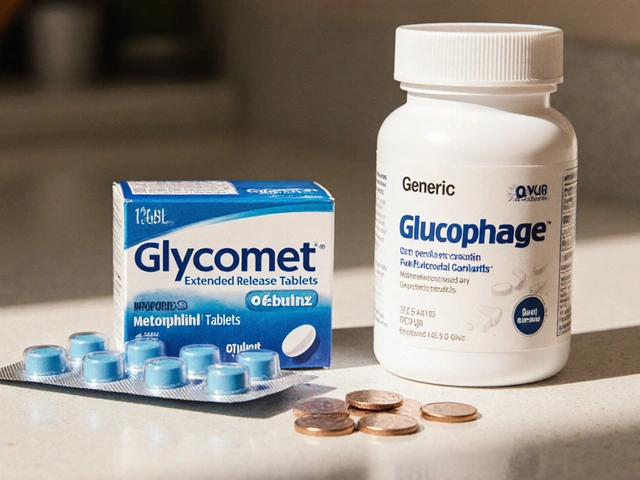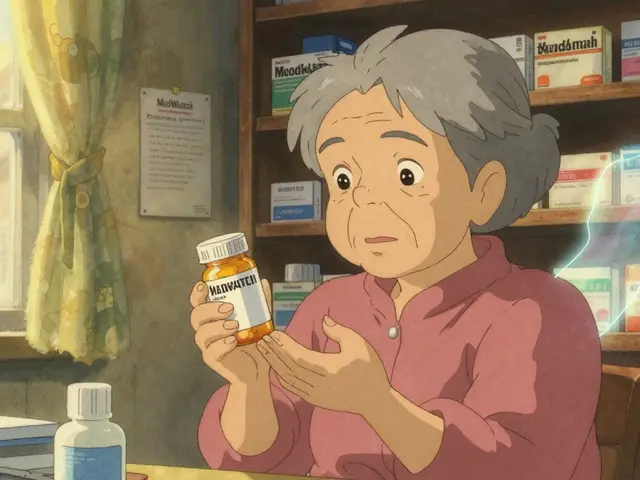
Exploring Colchicine's Anti-Inflammatory Properties
In recent years, there has been growing interest in the potential off-label uses of colchicine, a medication traditionally used to treat gout. One of the most promising areas of research is in the field of anti-inflammatory treatments. Colchicine is known to have powerful anti-inflammatory effects, which could make it a valuable tool in managing a wide range of conditions.
Studies have shown that colchicine can effectively reduce inflammation in conditions such as pericarditis, a painful inflammation of the sac surrounding the heart. Additionally, it has been found to be beneficial in treating recurrent episodes of acute pericarditis, which can be particularly challenging to manage. The potential for colchicine to be used as a safe and effective alternative to more traditional anti-inflammatory medications, such as nonsteroidal anti-inflammatory drugs (NSAIDs) and corticosteroids, is an exciting prospect for many medical professionals.
Further research is needed to understand the full extent of colchicine's anti-inflammatory properties, as well as to determine the optimal dosing and duration for various conditions. However, the potential for this versatile medication to improve the quality of life for millions of people suffering from painful inflammatory conditions is certainly worth exploring.
Colchicine in Cardiovascular Disease Management
Another promising off-label use of colchicine is in the field of cardiovascular disease management. Inflammation plays a significant role in the development and progression of atherosclerosis, which can ultimately lead to heart attacks and strokes. Because of its potent anti-inflammatory properties, colchicine has been investigated as a potential treatment for preventing cardiovascular events in high-risk patients.
Recent clinical trials have demonstrated that low-dose colchicine, when added to standard medical therapy, can significantly reduce the risk of major cardiovascular events, such as myocardial infarction and stroke, in patients with a history of coronary artery disease. These findings suggest that colchicine may be a valuable addition to the current arsenal of medications used to prevent cardiovascular disease.
As with its anti-inflammatory uses, more research is needed to determine the optimal dosing and duration of colchicine for cardiovascular disease prevention. However, the prospect of a safe, low-cost, and widely available medication with the potential to significantly reduce the burden of cardiovascular disease is an exciting development in the field of medicine.
Colchicine's Potential in Autoimmune Disease Treatment
Given its potent anti-inflammatory properties, it is not surprising that colchicine has also been investigated as a potential treatment for various autoimmune diseases. These diseases, such as rheumatoid arthritis, lupus, and Behçet's disease, are characterized by an overactive immune system that attacks the body's own tissues, leading to chronic inflammation and tissue damage.
Several small studies have shown that colchicine may be effective in reducing the symptoms and inflammation associated with these autoimmune diseases, particularly in patients who have not responded well to other treatments. For example, in Behçet's disease, colchicine has been found to be particularly effective in managing oral and genital ulcers, which can be a significant source of pain and discomfort for patients.
While larger, randomized controlled trials are needed to confirm these findings and establish optimal dosing regimens, the potential for colchicine to provide relief to those suffering from debilitating autoimmune diseases is an exciting area of research.
Colchicine in the Treatment of Liver Fibrosis
Liver fibrosis is a serious condition that can result from chronic liver damage due to various causes, such as viral hepatitis, alcohol abuse, or nonalcoholic fatty liver disease. As liver fibrosis progresses, it can lead to cirrhosis and liver failure, which can be life-threatening. There is currently no specific treatment for liver fibrosis, and management is focused on addressing the underlying cause of the liver damage.
Interestingly, recent studies have suggested that colchicine may have a role to play in the treatment of liver fibrosis. Colchicine's anti-inflammatory and anti-fibrotic properties make it a promising candidate for slowing the progression of fibrosis and potentially even reversing some of the damage. Preliminary studies in animal models and small clinical trials have shown promise in this area, but further research is needed to fully understand colchicine's potential in treating liver fibrosis.
As liver fibrosis is a major global health issue, the prospect of a widely available, low-cost medication like colchicine being used to treat this condition would be a significant breakthrough in the field of hepatology.
Colchicine and Cancer Treatment: A Promising Frontier
Finally, one of the most intriguing potential off-label uses of colchicine is in the field of cancer treatment. Studies have shown that colchicine can induce cell death (apoptosis) in various types of cancer cells, including breast, lung, and prostate cancer. Additionally, colchicine's ability to inhibit cell division and migration may help to prevent the spread of cancer cells to other parts of the body (metastasis).
While the exact mechanisms by which colchicine exerts these anti-cancer effects are not yet fully understood, the potential for this medication to be used as part of a targeted cancer therapy is an exciting area of research. However, it is important to note that the doses of colchicine needed to achieve these anti-cancer effects may be much higher than those used for its other off-label uses, which could limit its potential in this area due to the risk of side effects.
As with all of the potential off-label uses of colchicine discussed in this article, further research is needed to fully understand its potential and to establish safe and effective dosing regimens. However, the versatile nature of this medication and its potential to improve the lives of patients with a wide range of conditions make it a truly fascinating subject for continued study.
16 Comments
Write a comment
More Articles

Glycomet (Metformin) vs Alternative Diabetes Drugs: Full Comparison
A detailed comparison of Glycomet (metformin) with generic metformin and newer diabetes drugs, covering efficacy, cost, side effects, and how to choose the right option.



Georgia Green
May 20, 2023 AT 17:50Colchicine is underrated. I've seen it work wonders for pericarditis patients who couldn't tolerate NSAIDs. Low dose, low risk, big payoff.
Just wish more docs knew about it.